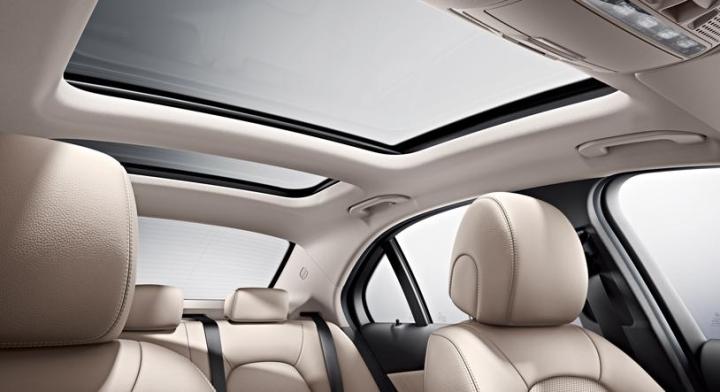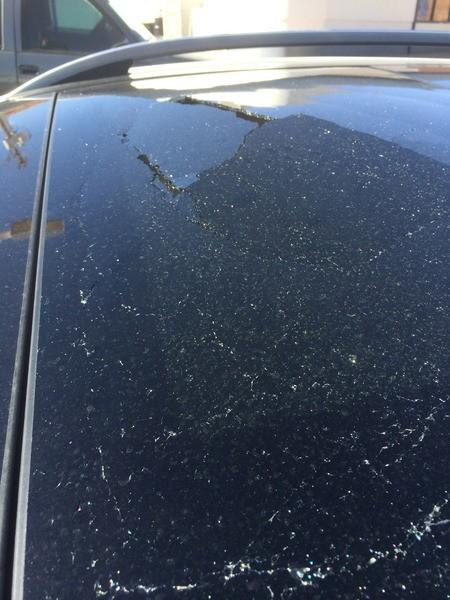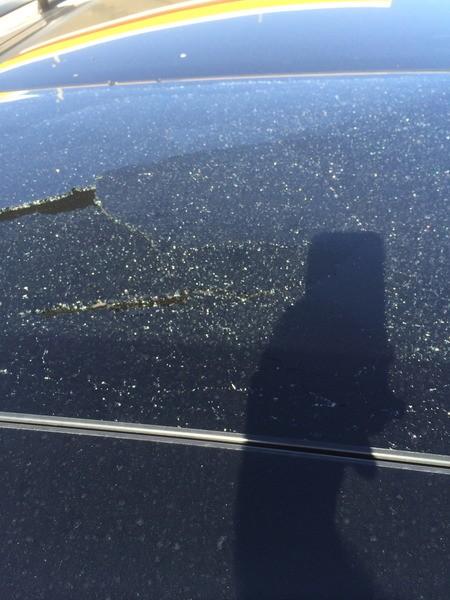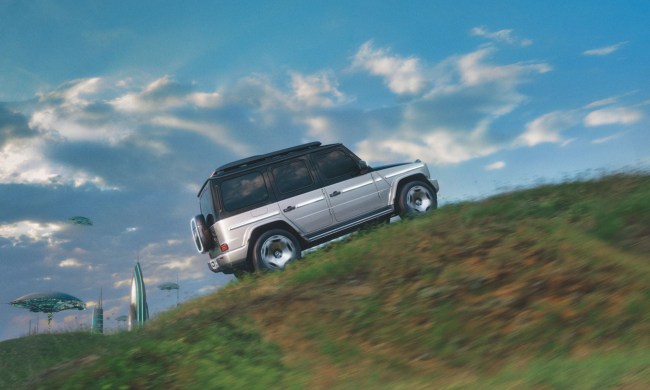
This particular owner was driving a GL550 SUV with no other vehicles around when the roof suddenly failed, cracking the glass and causing a large hole to appear in the material. According to G55K, the dealership refused to cover it under warranty, instead charging a whopping $1800 for repairs and labor.
“I have a GL550 with approx 14,000 miles on it. I was driving from Moab to Lake Powell and the panoramic rough literally exploded. Scared the crap out of me! It wasn’t a rock as there were no cars around us. We were in the middle of no where when it happened. It was about 105F outside so my guess is that it was caused by the heat,” one user wrote.
In the same thread, the driver of a 2014 GLK350 reported the exact same problem with no impacts found. Further down, you’ll see that a 2015 GL and a 2013 GL350 experienced similar failures.
A quick Google search will net many more instances like this, from several major automakers not tied to Daimler.
There are several reasons why this could be happening, including weak assemblies and foreign objects, but the evidence points to other causes.
Most of the failures occurred when the vehicle was driving on the freeway, often in extreme heat. The stark temperature discrepancy between the exterior and interior of the glass could be a culprit here, as this type of stress can weaken materials over time.
Another suspect is interior air pressure. Carmakers — especially luxury carmakers — pride themselves on quiet, air-tight cabins. Sunroof glass is often quite thin, so it is often the weakest point for pressure to escape from. This is substantiated by owner claims that the sunroofs actually exploded outward instead of falling inward.
Mercedes-Benz USA told us it was unable to comment on the issue, because “we don’t have full purview on the topic.” The automaker suggested consumers with affected vehicles contact customer service immediately to open an investigation, at 800-822-8987.
If anybody has experienced a similar issue with their vehicle, regardless of manufacturer, please let us know in the comments section below.





